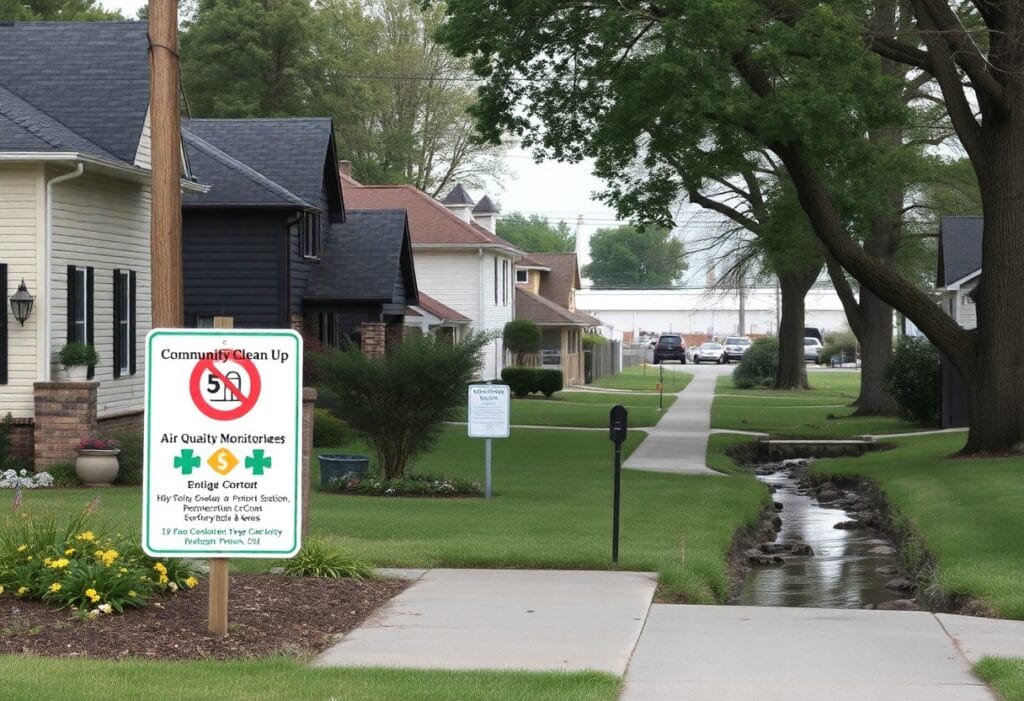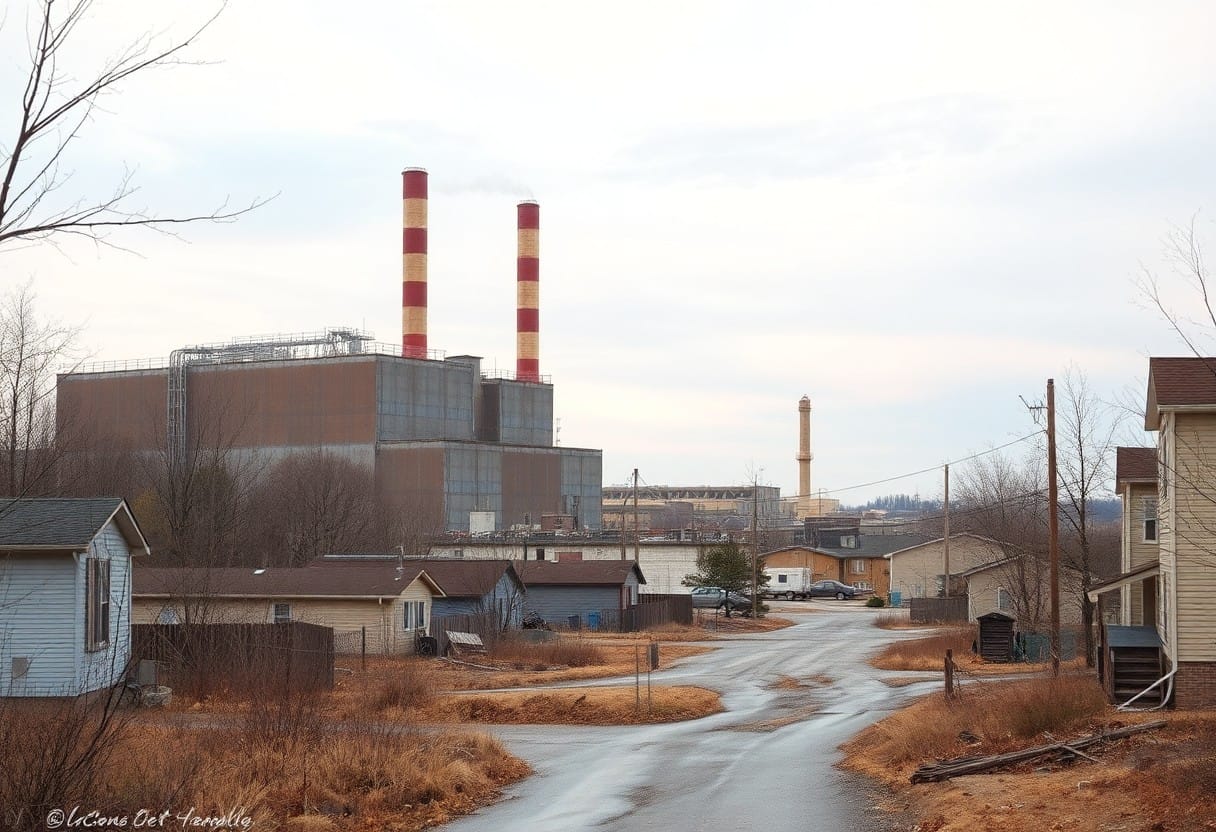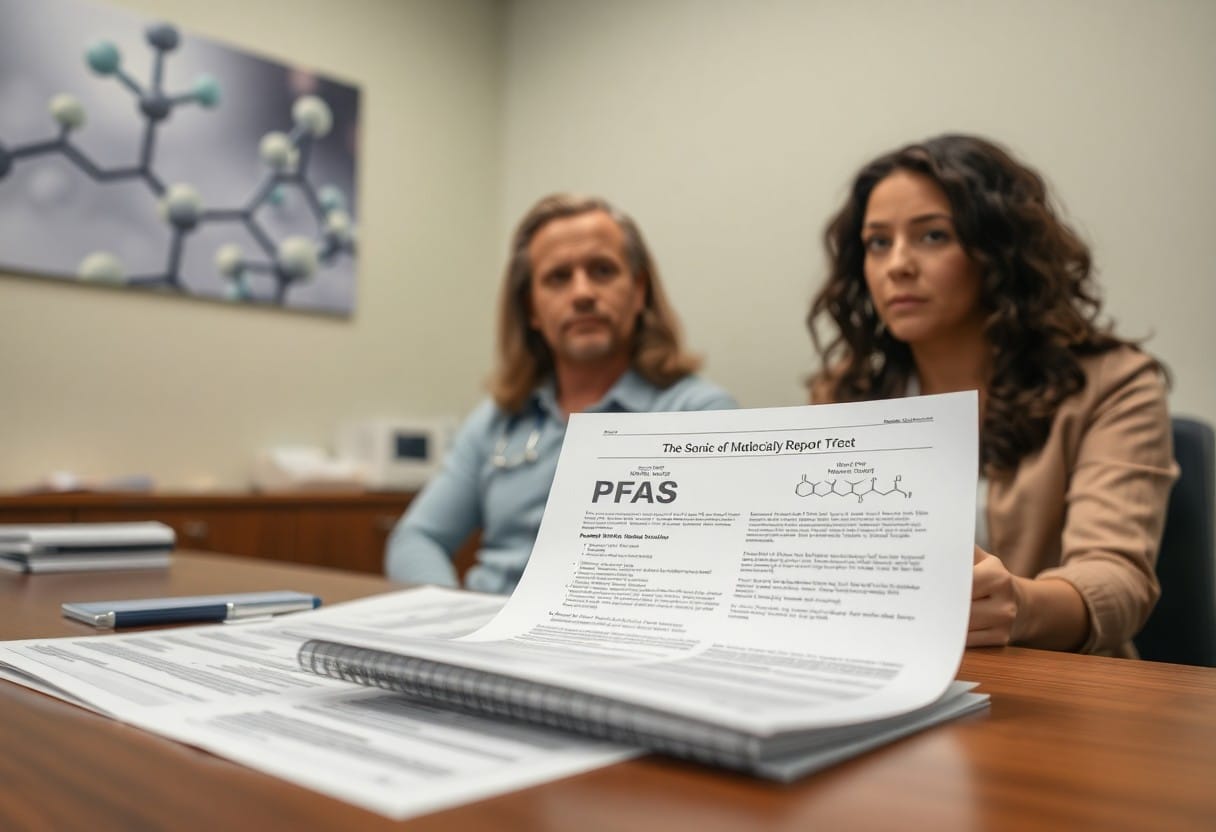There’s a growing concern among Fayetteville residents regarding the impact of Chemours’ contaminants on local water and air quality. As a community member, it’s necessary to take proactive steps to safeguard your health and wellbeing. This post discusses five effective strategies you can implement to minimize exposure to these harmful substances. By being informed and taking action, you can help ensure a cleaner and safer environment for you and your family.
Understanding Chemours’ Contaminants
While the presence of Chemours’ contaminants in Fayetteville’s environment is concerning, it’s vital to comprehend what these substances are and how they impact your community. Chemours produces a variety of chemical compounds, particularly per- and polyfluoroalkyl substances (PFAS), which have seeped into local water supplies. Being informed about these contaminants can empower you to take actionable steps to safeguard your health and your family’s well-being.
Overview of Chemical Contaminants
The contaminants associated with Chemours primarily include PFAS, also known as “forever chemicals.” These substances are notorious for their persistence in the environment and human body, leading to long-term exposure risks. As a Fayetteville resident, it’s vital to stay informed about the potential presence of these chemicals in your water and soil.
Health Risks Associated with Exposure
One of the major concerns surrounding Chemours’ contaminants is the health risks linked to exposure. Studies have shown that exposure to PFAS can lead to various health issues, including kidney and testicular cancer, thyroid disorders, and immune system dysfunction.
Overview of these health risks highlights the importance of understanding how PFAS can affect your health. Long-term exposure to these contaminants has been associated with serious health conditions such as elevated cholesterol levels and complications during pregnancy. In particular, the immune system can be weakened, reducing your ability to fight infections. By being aware of these risks, you can take proactive measures to limit your exposure and protect your health.
Monitoring Air Quality
Now is the time to take charge of your environment by actively monitoring air quality in Fayetteville. Regularly checking air quality indices can help you stay informed about pollution levels and take necessary precautions to protect your health. By being vigilant, you can make educated decisions about outdoor activities and further pressure local authorities to address pollution concerns.
Tools and Techniques for Residents
Quality air is vital for your health, and utilizing tools like air quality apps or personal monitoring devices can help you track pollution levels in your area. These technologies are user-friendly and provide real-time data, allowing you to plan your activities around safer conditions. You can also collaborate with community groups to share findings and raise awareness about air pollution in Fayetteville.
Resources for Staying Informed
At your fingertips, numerous resources can help you stay informed about air quality and contaminants in Fayetteville. Local government websites, health departments, and environmental organizations offer valuable information on air quality indices, alerts, and safety guidelines. Consistently visiting these resources ensures you remain knowledgeable about the air you breathe.
And don’t overlook the value of social media and community forums in keeping you updated. Many local advocacy groups offer real-time alerts regarding air quality and discussions on the impact of Chemours’ contaminants. Following these channels can empower you to share information, engage with others about pollution health risks, and push for< strong> positive changes in your community. Being proactive in staying informed puts you in a better position to protect your health and well-being.
Water Safety Measures
It is vital for Fayetteville residents to adopt water safety measures to protect themselves from contaminants released by Chemours. Local water sources may be affected by toxic substances, so staying informed is vital. You can learn more about the impact of PFAS and The Wrong Side of Forever to understand the risks and ongoing developments in your area’s water quality.
Home Water Testing
Testing your water regularly is an effective way to identify potential contaminants. You can use DIY test kits available at local hardware stores or send samples to certified laboratories for more accurate analysis. By knowing the levels of harmful substances in your water, you can take informed steps to ensure your family’s safety.
Filtration Systems and Certifications
With various filtration systems on the market, it’s important to choose one certified to remove PFAS and other hazardous chemicals. Look for systems that have been tested and certified by reputable organizations. Well-designed filters can successfully decrease the levels of potentially dangerous contaminants in your drinking water, contributing to a healthier home environment.
To ensure the best protection, prioritize filtration systems certified by NSF or ANSI for their performance against PFAS. These systems can range from activated carbon filters to reverse osmosis units and should be maintained according to manufacturer specifications. Regularly replacing filters is vital to keep your water quality high and to effectively eliminate harmful contaminants from your drinking water.
Community Engagement
Not only can you protect yourself and your family from contaminants in Fayetteville, but you can also make a significant impact by engaging with your community. Active participation fosters awareness and encourages collective action against environmental threats, creating a unified front to demand accountability and safety measures from organizations like Chemours. Connecting with neighbors and local leaders amplifies your voice in advocating for cleaner, safer living conditions.
Joining Local Advocacy Groups
Between the various advocacy groups in Fayetteville, you can find a supportive network dedicated to raising awareness about Chemours’ contaminants and their impact on community health. Joining these groups allows you to collaborate with like-minded individuals, share valuable information, and work together towards effective solutions for your neighborhood.
Participating in Public Meetings
On a local level, engaging in public meetings is an crucial way to voice your concerns and stay informed about decisions that affect your community. This platform allows you to pose questions, express your thoughts on environmental matters, and hold officials accountable for their actions regarding contamination.
For instance, attending city council meetings or environmental forums can provide you with insights into ongoing actions regarding Chemours’ contaminant management. These meetings are often where significant decisions are made, and your input can influence policies that impact public health. It’s also an opportunity to learn from experts, network with other community members, and understand the regulatory landscape. By actively participating, you demonstrate your commitment to fostering a healthier environment for yourself and future generations.
Legal Options for Affected Residents
All Fayetteville residents impacted by Chemours’ contaminants should explore their legal options to seek justice and potential compensation. Engaging with a knowledgeable attorney who specializes in environmental law can help you understand your rights and the best course of action for your situation, including filing a lawsuit or joining a class action suit against the company. Taking legal steps can hold Chemours accountable for the contamination and potentially result in funds for medical expenses, property damage, or other related losses.
Exploring Compensation Claims
Residents with health issues or property damage due to Chemours’ contaminants may be entitled to compensation. Exploring compensation claims can provide financial relief and help you cover medical bills, lost wages, and potentially even pain and suffering. Consult with an attorney who is well-versed in environmental law to evaluate your situation and determine the best approach for pursuing claims against Chemours.
Understanding Environmental Regulations
To protect yourself and your community, it is crucial to understand the environmental regulations that govern pollution and contaminant management. By familiarizing yourself with local, state, and federal laws, you can better advocate for your rights and hold polluters accountable. This knowledge empowers you to engage with regulatory agencies effectively and to demand that they enforce compliance with existing laws.
Considering the potential risks associated with chemical contaminants, you must familiarize yourself with the Environmental Protection Agency (EPA) regulations, which aim to protect your health and the environment. These regulations specify acceptable levels of pollutants and outline necessary remediation steps for contaminated sites. Understanding these laws allows you to stay informed about your rights and available legal recourse and helps ensure that any violations are reported so appropriate action can be taken to safeguard your community’s health.

Practical Tips for Daily Living
Despite the ongoing concerns regarding Chemours’ contaminants, you can take proactive steps to safeguard yourself and your family. Consider these practical tips:
- Test your well water for contaminants.
- Stay informed about local advisories.
- Use filtration systems designed to remove PFAS.
- Support local efforts for clean water initiatives.
- Engage with resources like Chemours to expand well testing for PFAS contamination.
Knowing how to protect yourself is the first step in creating a safer environment for you and your community.
Reducing Potential Exposure
At home, you can reduce potential exposure to contaminants by being mindful of your water sources. Regularly check for any notices regarding your local water supply and consider installing a high-quality water filtration system that specifically targets PFAS and other harmful chemicals.
Supporting Local Sustainable Practices
Potential solutions to mitigate contamination issues lie in supporting sustainable practices within your community. By choosing to buy from local farmers and businesses that prioritize environmentally-friendly methods, you help create a market that values clean, safe products. Additionally, participating in local clean-up efforts can raise awareness and mobilize others in your community.
Due to the pervasive nature of contaminants linked to Chemours, it’s vital for you to advocate for and support initiatives focused on sustainable practices. Engaging in activities such as community clean-ups, participating in farmer’s markets, and encouraging businesses to employ eco-friendly practices can significantly reduce the risks associated with contamination. Your participation not only helps protect your health but also contributes to a broader recognition of the importance of environmental responsibility in your area.
Final Words
So, by implementing these five important strategies, you can effectively safeguard yourself and your loved ones against the contaminants from Chemours. Staying informed about local water quality, using filtration systems, participating in community advocacy, maintaining your home, and seeking medical advice when necessary will empower you to take charge of your health. By taking these proactive steps, you not only protect yourself but also contribute to a healthier environment for all Fayetteville residents.


















